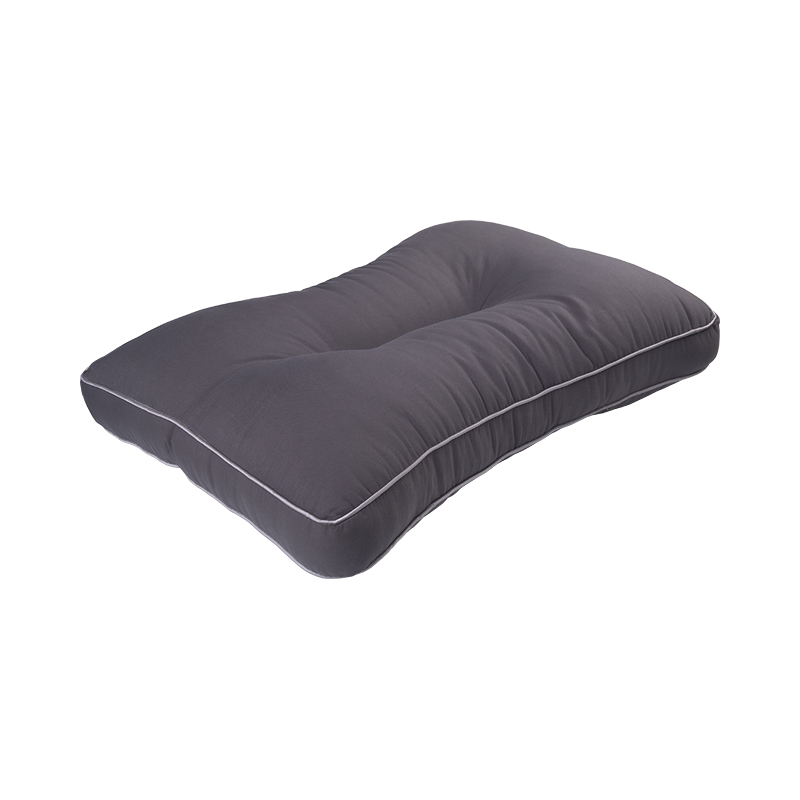The comfort of hotel pillows plays a significant role in influencing sleep quality, particularly through aspects like breathability and temperature regulation. These two factors are crucial for creating an optimal sleep environment and can directly impact how well a person rests during their stay.
One of the primary ways breathability in pillows affects sleep quality is by preventing overheating. During sleep, the body naturally generates heat, and if the pillow material is not breathable, it can trap heat, leading to an uncomfortable and restless night. Pillows made from materials like natural latex, cotton, and memory foam with open-cell structures are known to be more breathable compared to denser materials like synthetic foams.
Good breathability allows air to flow through the pillow, which helps dissipate heat and moisture. This keeps the head and neck cool, promoting better sleep quality. Overheating can cause night sweats, discomfort, and frequent waking, disrupting the deep, restorative stages of sleep. A breathable pillow helps regulate temperature around the head, ensuring a more comfortable sleep environment, especially for people who tend to sleep hot.
Breathable pillows also help in moisture control. As we sleep, we perspire, and without proper breathability, sweat can accumulate around the neck and head, creating an uncomfortable, damp feeling. Pillows with high breathability allow moisture to evaporate, keeping the sleeping surface dry and hygienic. This reduces the risk of feeling sticky or clammy, which can disturb sleep. Additionally, moisture control is important for preventing the growth of bacteria, mold, and allergens, which can affect sleep quality, especially for individuals with respiratory issues or allergies.
Temperature regulation is closely tied to the body’s circadian rhythms, which influence sleep patterns. The body naturally cools down as it prepares for sleep, and maintaining a cooler environment helps facilitate this process. Pillows that regulate temperature effectively contribute to this process by helping the head remain at an ideal temperature. If the pillow traps too much heat or fails to dissipate excess warmth, it can cause discomfort, resulting in disrupted sleep.

A pillow with good temperature-regulating properties, such as those made from natural fibers like cotton or cooling memory foam, can help maintain a consistent, comfortable temperature throughout the night. Some high-end pillows feature cooling gels or phase-change materials (PCMs) that actively absorb or release heat, ensuring that the pillow stays cool during the night, which is particularly beneficial for those who experience hot flashes, night sweats, or naturally sleep warm.
Pillows with good temperature regulation prevent the issue of fluctuating temperatures, which can disturb sleep. For example, if a pillow starts cool and gradually becomes too warm as the night progresses, it can lead to waking up frequently or tossing and turning to adjust to the changing conditions. By maintaining a stable, comfortable temperature throughout the night, temperature-regulating pillows promote deeper, more restful sleep.
For individuals who experience temperature sensitivity, such as those in hot or cold climates, having a pillow that consistently maintains the right level of temperature can make a significant difference in improving sleep quality.
Pillows made from natural materials, such as cotton, wool, and bamboo, generally have superior breathability and temperature-regulating qualities. For example, cotton is a naturally breathable fabric that helps wick away moisture, keeping the sleeping surface cool and dry. Wool is also an excellent insulator that can help maintain a comfortable temperature while preventing overheating. Bamboo-derived fabrics are gaining popularity for their softness, breathability, and moisture-wicking properties, making them ideal for pillows designed to regulate temperature.
While natural materials are known for their breathability, modern synthetic materials have also been developed to improve breathability and temperature regulation. For instance, memory foam pillows have traditionally been known for trapping heat, but many manufacturers have improved their design by incorporating cooling gel layers or ventilated channels that enhance airflow and help maintain a comfortable temperature.
Cooling gels or phase-change materials (PCMs) integrated into memory foam or other synthetic pillows are designed to absorb excessbody heat and release it when the temperature drops, keeping the pillow at an optimal temperature throughout the night. These technologies are especially effective for people who suffer from temperature-related sleep disturbances.
Some hotel pillows combine natural and synthetic materials to achieve the ideal balance of breathability, comfort, and temperature regulation. For example, a pillow might have a down alternative or memory foam core, combined with a cotton or bamboo cover. These hybrid pillows can offer a more customizable sleep experience, allowing for both the support of synthetic materials and the breathability and moisture-wicking properties of natural fibers.
By offering pillows with high breathability and effective temperature regulation, hotels can create a more restful, comfortable environment, improving overall guest satisfaction and sleep experience.